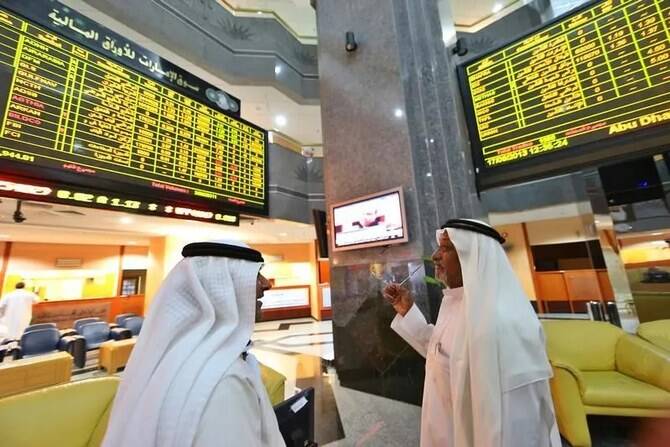Saudi Arabia’s TASI Closes Lower Amid Global Trade Concerns
The Tadawul All Share Index (TASI), Saudi Arabia’s benchmark stock index, closed on a negative note Thursday, reflecting growing investor concerns about the global trade landscape and its potential economic impact. This development highlights the ongoing uncertainties in global markets, which continue to influence investor sentiment, particularly in the Gulf region.
TASI ended the day at 6,899 points, marking a decline of 0.7%. This drop brought the index to its lowest point in nearly three weeks, indicating a sharp reversal from the gains observed earlier this month. The total trading volume for the session was SAR 3.1 billion, with 290.05 million shares changing hands in over 200,000 transactions. The decline in TASI was widespread, with losses seen across all sectors, but the petrochemical sector, which is a key driver of the Saudi economy, was particularly affected.
Petrochemical Sector Takes a Hit
SABIC, a major player in the petrochemical industry, experienced a drop of more than 1%, closing at SAR 97.25. This decline is especially notable given SABIC’s pivotal role in the Saudi economy, both as an export leader and a major component of the TASI index. The downturn in petrochemical stocks reflects investor concerns about potential slowdowns in global trade, as the sector is highly sensitive to international economic conditions and commodity prices.

Additionally, shares of the Saudi Arabian Mining Company (Ma’aden) fell by 1.3%, and ACWA Power saw a 1.5% drop. These declines indicate broader market apprehension, with investors reducing exposure to sectors that could be negatively impacted by slower global growth or disruptions in international trade.
Ex-Dividend Stocks Weigh Down Market
Stocks such as Saudi Electricity and Savola also experienced losses, largely due to the timing of their ex-dividend dates. This is a typical market occurrence, where stocks tend to decline following the payment of dividends as the companies’ stock prices adjust to reflect the payout. While this is a normal market fluctuation, it adds to the overall negative sentiment in an already declining market.
Furthermore, Budget Saudi saw a significant drop of 7%, while Othaim Markets fell by over 2%. These companies, part of the retail and services sectors, are generally more sensitive to domestic economic conditions and consumer confidence. Retail stocks like Othaim Markets, which operates a large chain of supermarkets and hypermarkets in Saudi Arabia, are directly impacted by shifts in consumer spending, making them vulnerable to broader market trends.
Global Trade Concerns and Investor Sentiment
Investor sentiment was further exacerbated by recent remarks from U.S. Federal Reserve Chair Jerome Powell. Powell warned that ongoing global trade disputes—particularly the tensions between the U.S., China, and other major trading partners—could result in slower economic growth and rising inflation. These factors, coupled with concerns about potential tariffs, have heightened uncertainty in financial markets globally, including in the Gulf region.
The caution expressed by Powell has resonated with investors, who are now taking a more cautious approach to trading. The broader uncertainty surrounding the impact of tariffs, especially on key Saudi export sectors such as oil and petrochemicals, is weighing on investor sentiment. In addition to trade concerns, global inflationary pressures are also making investors wary, as rising prices could hurt consumer demand and business profitability.
Resilient Stocks Amid Market Weakness
Despite the overall downturn, some stocks showed resilience during Thursday’s trading session. Al-Babtain, a company specializing in power and communications infrastructure, gained 4%, reaching its highest closing level in over a year. This positive performance stands in contrast to the broader market trend, highlighting that certain stocks are still able to attract investor interest even amid broader market challenges.
The resilience of Al-Babtain is also a reflection of the company’s strong fundamentals and its role in key infrastructure projects in Saudi Arabia. While the broader market faces challenges due to external factors like global trade tensions, companies with solid domestic growth prospects and long-term infrastructure contracts can still perform well, offering a degree of stability for investors.
Looking Ahead: The Impact of Global Trade Negotiations
As the global trade situation remains fluid, investors will be closely monitoring developments in the ongoing negotiations between the U.S., China, and Japan. These discussions could significantly influence market sentiment and stock performance in the coming weeks, particularly in regions like the Gulf, where global trade and oil prices are key economic drivers.
The outlook for Saudi Arabia’s economy is closely tied to international trade dynamics. As one of the world’s leading oil exporters, Saudi Arabia is highly sensitive to fluctuations in global trade policies, commodity prices, and market access. Any disruptions to trade, particularly in the oil and petrochemical sectors, could have a direct impact on Saudi economic growth and, by extension, the performance of the TASI index.
Sector-Specific Outlook
Looking beyond the current market dip, analysts expect that some sectors may recover faster than others once global trade concerns ease. The petrochemical sector, for example, remains a key pillar of the Saudi economy, and any improvements in global trade could provide a significant boost to companies like SABIC and Ma’aden. Additionally, infrastructure and energy companies could see continued growth as the Saudi government ramps up spending on Vision 2030 projects, which aim to diversify the economy and reduce reliance on oil exports.
Retail and consumer-focused companies, such as Othaim Markets and Savola, may face challenges if consumer confidence continues to wane, but they could benefit from a recovering domestic economy in the medium term. Moreover, any changes in global trade relations that benefit oil prices or increase demand for petrochemical products could create a more favorable environment for these stocks.
Conclusion
Thursday’s market performance highlights the ongoing concerns surrounding global trade, which are impacting investor sentiment in Saudi Arabia and the broader Gulf region. While TASI faced a significant decline, driven by weakness in key sectors such as petrochemicals and mining, some companies demonstrated resilience.
With global trade tensions and inflationary pressures continuing to weigh on markets, Saudi investors will need to navigate an uncertain environment. However, opportunities may emerge in sectors with strong domestic growth prospects, particularly as Saudi Arabia continues to pursue its Vision 2030 objectives.
As the market adjusts to these challenges, it will be crucial for investors to monitor developments in global trade, oil prices, and the broader economic landscape to make informed decisions in the coming weeks.
for more information click here



